Dyckia beatea var. Barra do Garças-MT
This is one of the three Dyckia beateae varieties known up to now.
Maybe in the future it will be decided the three varieties are in fact threes species but
this is all conjectures. The first and well known abroad is a a yellowish and big plant bearing conspicuous yellow curved spines and the second is a smaller plant that tends to be solely rich reddish under the fierce Sun. All very good looking plants
Just dreaming:
I do enjoy the hybrids and I think nothing can be more nature preserving than hybrids as they are or tend to be beautiful plants designed to our wishes and needs...but..always a but, in Dyckias everything is quite different. When one crosses two different looking Dyckias no matter hybrids or species, we hardly have an army of very same looking individuals but many different ones. also we can repeat many times the very same procedure and get to also different results never matching the first one. This results in a very sad practical consequence: hybrids can be very very very rare plants. Much rarer than the parents may be.
One special hybrid Dyckia can be just an only one on the globe. This is just a bit commoner than a Dodo (living or dead). A single being that only reproduces itself by self division or basal sprouts as its descend is always a true guessing with many possibilities but never the same looks will emerge in F1, F2 .....to the end. So one think we may be sure every Dyckias has its only and unique beauty.
We shall have one day a n army of man made Dyckia Bill Paylen, Dyckia Brittle Star, Dyckia Estrela Brasileira ...the future is not ours to see and what will be will be, que será, será...( The beautiful song performed by Doris Day)
Below we see a fantastic beautiful true Dyckia goheringii, maybe the most beautiful Dyckia species found up to now. Notice how similar is its arrangement to the above plant.
Now what about a marriage here or just a night stand (D. goehringii is polinated by night.)?
Will the resulting plants be very similar to their parents only differently colored?
Que será, será!







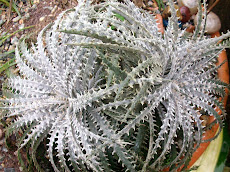



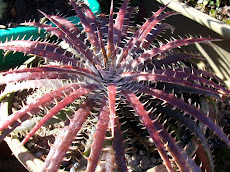
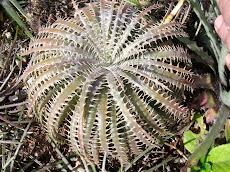
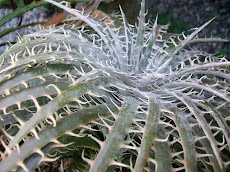
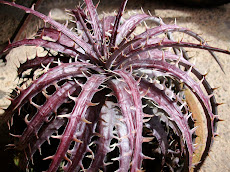

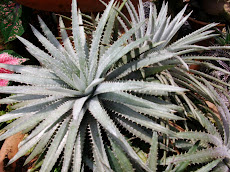

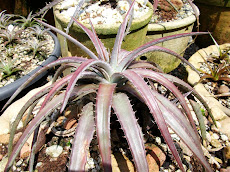
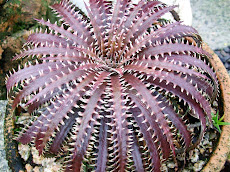

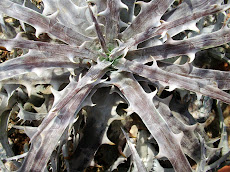
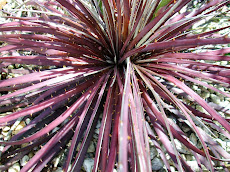
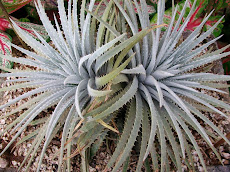
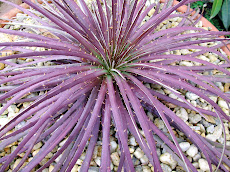
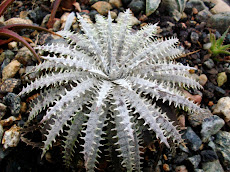
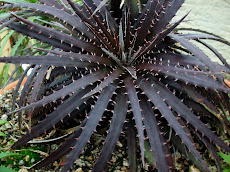
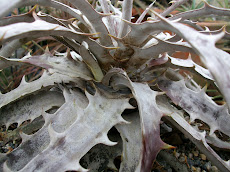
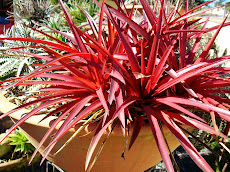
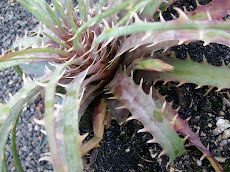

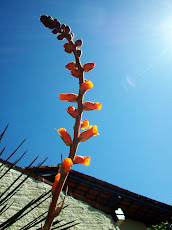
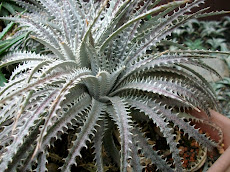

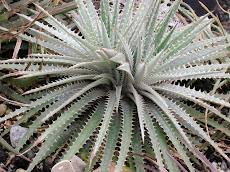
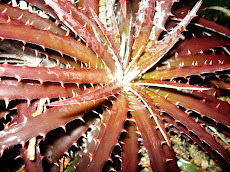
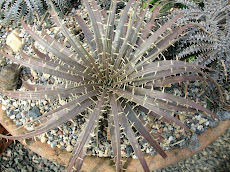

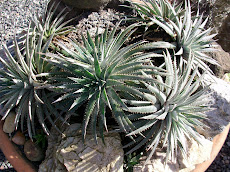
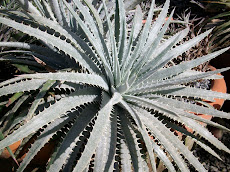

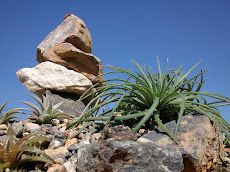
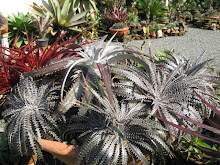
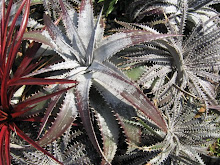
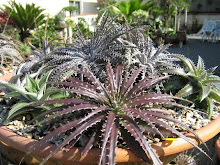
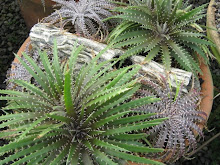
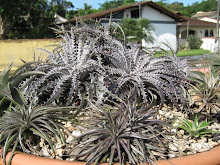
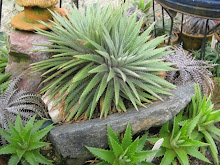

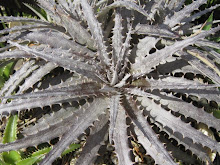
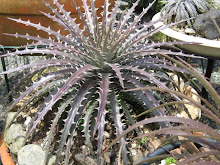
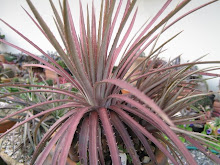

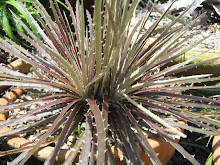
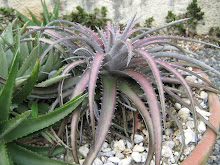
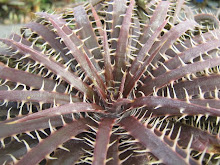



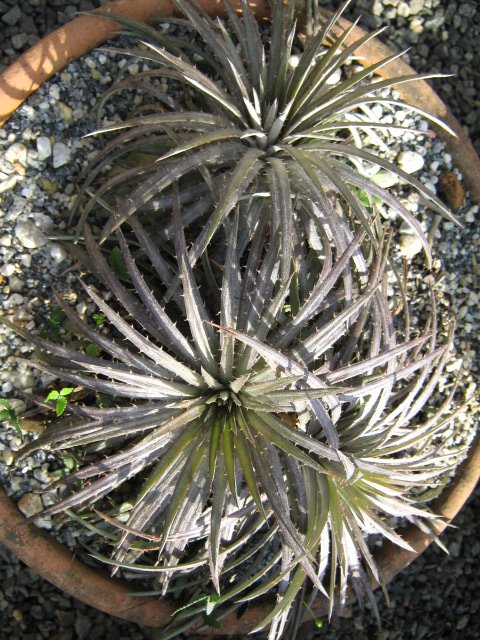
No comments:
Post a Comment